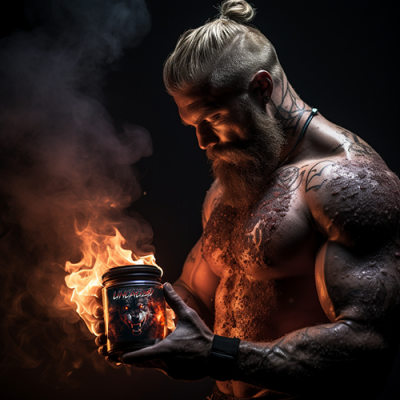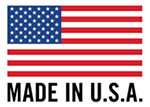
Everyday Chemicals Are Screwing Up Your Testosterone
You may have already read my other article on 7 habits which are killing your testosterone. There was a section in that on Water because

As an athlete, bodybuilder, or runner, you’re more active than the average person. That means you need above average nutrition.
A multivitamin can help fill in those nutritional gaps that you’re missing, ensuring heightened levels of recovery and results.
But not all multivitamins are created the same. Let’s take a look at what an elite-level multivitamin should contain.
The majority of multivitamins that you’ll find in your local supermarket or pharmacy are synthetic extracts. This means the vitamins and minerals were created in a lab, not taken from actual fruits and vegetables.
Studies show that synthetic multivitamins have notoriously poor bioavailability and absorption rates.
This is why a synthetic vitamin contains up to a thousand percent more than your recommended daily allowance. The body excretes most of it, but that tiny bit that’s absorbed is what counts. (1)
What’s more, synthetic vitamins are not able to be used in the same way as whole food and natural extracts.
And it’s not as if you can just take double the recommended serving of a synthetic multivitamin because this can put you at risk for vitamin toxicity. (2)
When shopping for a multivitamin, look for one that is whole food based. All of the vitamins and minerals are extracts from real food, not chemicals in a lab.
Nitrates have something of a bad reputation in popular media. Some experts believe that a diet high in nitrates can increase your risk for cancer.
But there’s more to the story than what the news lets on. Processed meats contain high levels of nitrates, and do you know what else is packed with nitrates? Vegetables and fruits!
Diets that contain a high level of consumption of processed meats such as hot dogs and deli meat may increase your risk for cancer, but a vegetable and fruit-based diet does just the opposite.
What usually doesn’t get mentioned is the benefit of natural nitrates for your health. Studies show that a diet rich in natural nitrates can reduce systolic blood pressure.
Researchers agree that there is potential for a reduced risk of cardiovascular issues with a diet containing natural forms of nitrates. (3)
Athletes have also found nitrates to be helpful. One study gave athletes nitrate supplements and the results were impressive with subjects showing improved performance and quicker recovery time.
Researchers agree that “dietary NO₃ (nitrate) supplementation improves performance during intense intermittent exercise and may be a useful ergogenic aid for team sports players.” (4)
To maximize the amount of healthy nitrates in your diet, don’t overcook vegetables or fruits and stay away from processed meats.
Foods rich in healthy nitrates include beetroot and spinach.
Phytonutrients are important compounds naturally found in plants. A few examples include the following:
Ellagic Acid: A popular antioxidant, ellagic acid supports the natural process of detoxification. In particular, it helps to remove free radicals that can damage cells.
Foods rich in ellagic acid include grape seed and pomegranate.
Resveratrol: Easily one of the most recognizable phytonutrient thanks to the Dr. Oz show and the Joe Rogan podcast, resveratrol is similar to ellagic acid in that it acts like an antioxidant.
Resveratrol has anti-aging benefits, helping to remove harmful compounds from the body before they have a chance to cause real damage.
Foods high in resveratrol include grape seed and dark chocolate.
Flavonoids: Another type of plant compound, flavonoids have skyrocketed in popularity due to their anti-inflammatory and pro-immunity benefits.
Studies show that phytonutrients have powerful anti-inflammatory benefits. This is going to be useful if you’re looking for the best multivitamin for bodybuilders or athletes because of reduced soreness after a workout.
With that said, researchers suggest that more human studies are needed to confirm these benefits. (5)
One well-known and proven benefit of phytonutrients is their ability to significantly reduce the risk of certain diseases.
The U.S. Department of Agriculture (USDA) has confirmed that eating a phytonutrient-rich diet can be an effective way to reduce your risk for certain cancers and cardiovascular diseases such as heart disease. (6)
Foods rich in flavonoids include asparagus, green tea and dark chocolate.
I briefly mentioned antioxidants above in reference to phytonutrients, but let’s delve a little deeper. Whether it’s pollution in the air or the foods we eat, our bodies are constantly battling environmental factors every day.
In response to oxidative stress, free radicals are created. These unstable cells cause damage to DNA, increasing your risk for illness, disease, and medical complications.
Antioxidants, on the other hand, are chemicals that fight back against free radical damage. (7)
Studies show that antioxidants neutralize free radicals, protecting your cells from damage. Healthy cells mean optimal longevity, so it’s easy to see why antioxidants are essential in your daily diet, especially as an athlete. (8)
The intense workouts of an athlete, runner, or bodybuilder only increases the oxidative stress in the body, creating a prime environment for more free radicals.
But a diet that is rich in antioxidants can help to eliminate those potentially troublesome free radicals.
Foods rich in antioxidants include spinach, kale, beetroot and garlic.
I mentioned antioxidants above; however, there’s one type of antioxidant that I want to focus on: catechins.
Famously found in green tea and matcha, catechins are the reason that many people drink these beverages (although they may not realize it).
Catechins have been shown to promote a number of health benefits and they are especially useful for the diet of an athlete.
Studies show that catechins have powerful anti-inflammatory and anti-aging benefits.
For the runner or bodybuilder, this can mean reduced soreness following intense training. Reducing the inflammation response might also promote better overall recovery. (9)
Intense and extreme training sessions are all in a day’s work for a bodybuilder or athlete, but what many don’t realize is how taxing those workouts can be on the immune system.
Over-training might be up for debate, but under-recovery such as not getting enough sleep is a very real thing.
If you’re not getting the nutrients you need to support your recovery, you could be at risk for suppressing your immune response.
This will increase your chances of getting sick, and if you get sick, your symptoms could be a lot worse than normal.
Studies show that antioxidants, especially catechins, can help to boost the immune system. In fact, green tea in particular has consistently been rated as one of the best natural immune boosters and cold remedies for decades. (10)
Foods rich in catechins include green tea, dark chocolate and grape seed.
It can be a pain to look through dozens of multivitamins, hoping to find one that meets all of the requirements listed above. Thankfully, you don’t need to do any research because I’ve done it for you.
If you want an elite-level whole-food-based multivitamin that is packed with phytonutrients, antioxidants, and natural nitrates, look no further than Next Level.
Next Level is a multivitamin specifically designed for men and women who take their workout to the next level. Check out what Next Level Super Foods Multi offers and what real athletes like yourself are saying about it.
References

You may have already read my other article on 7 habits which are killing your testosterone. There was a section in that on Water because

Rhodiola Rosea stands out as a potent adaptogenic herb with a rich history of traditional use and a growing body of scientific research. Revered for

In this comprehensive article, we will explore what L-tyrosine is, its benefits as a pre-workout supplement, the correct dosage, and other potential health benefits it

Betaine anhydrous is becoming an increasingly popular ingredient for pre-workouts. In this article, we will explore the fundamentals of betaine anhydrous, its connection to carnosine,

Beta-alanine is a pre-workout powerhouse. From boosting workout performance to potential anti-aging effects, discover why this amino acid is a favorite among health buffs.

You may have already read my other article on 7 habits which are killing your testosterone. There was a section in that on Water because

Rhodiola Rosea stands out as a potent adaptogenic herb with a rich history of traditional use and a growing body of scientific research. Revered for

In this comprehensive article, we will explore what L-tyrosine is, its benefits as a pre-workout supplement, the correct dosage, and other potential health benefits it

In the ancient wilderness, a legendary creature prowled the untamed lands—a fierce and noble Alpha Wolf. This majestic beast possessed an aura of strength and resilience, leading its pack with unwavering authority.
In a parallel realm, a group of visionary alchemists delved into the mysteries of nature, seeking to create potent elixirs that could unlock the true potential of those who dared to embrace their inner power.
As fate would have it, these paths crossed, and an extraordinary alliance was forged. The Alpha Wolf and the alchemists found common ground in their pursuit of greatness, and thus, Alpha Wolf Nutrition was born.
United by a shared passion for excellence, the Alpha Wolf and the alchemists dedicated themselves to crafting supplements that harnessed the raw force of nature, empowering individuals to conquer their inner and outer worlds.
At Alpha Wolf Nutrition, we draw inspiration from the primal instincts of the Alpha Wolf—the embodiment of strength, leadership, and vitality. We believe that every individual possesses a dormant power within, waiting to be awakened.
Through our meticulously crafted products, we strive to unleash this dormant potential, allowing you to thrive in the face of challenges and embrace your true nature.
Our commitment lies in providing you with the highest quality, scientifically proven ingredients, carefully curated to deliver optimal results. We leave no room for guesswork, basing our formulations on human-backed research to ensure real, tangible benefits. With us, you’ll find no “proprietary blends” or token additions—just pure, effective dosages that fuel your journey to greatness.
Join the pack of Alpha Wolves and embark on a transformative journey with Alpha Wolf Nutrition. Embrace your inner strength, rise above the ordinary, and conquer your aspirations. Unleash the power within and let the spirit of the Alpha Wolf guide you to achieve your highest potential. Welcome to Alpha Wolf Nutrition, where the path to greatness awaits.

Alpha Wolf Nutrition is based on real science and results for the people we serve.
We do not cut corners, we do not hide behind “proprietary blends” and we do not put in worthless amounts of token ingredients to fill up a label.
What we do, is kick ass!

© 2016 – 2023 Alpha Wolf
Discount Applied Successfully!
Your savings have been added to the cart.